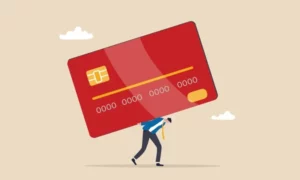Why Credit Card Debt Can Be Overwhelming Without Attorney Representation
Credit card debt is a common financial burden for millions of Americans. With the convenience of plastic money comes the risk of accumulating high-interest debt that can quickly spiral out of control. When consumers are unable to manage their balances, they may face aggressive collection efforts, lawsuits, and even wage garnishment. In such circumstances, navigating the legal and financial challenges alone can be overwhelming. This is where experienced firms like Wilkie Puchi LLP can make a critical difference. Having attorney representation can significantly impact the outcome of managing and resolving credit card debt, yet many people attempt to go it alone—often to their detriment.
The Complexity of Credit Card Debt
Credit card agreements are typically dense with legal jargon, fine print, and complex interest rate structures. Most consumers do not fully understand the terms of their credit agreements until they begin to fall behind on payments and feel the consequences—rising interest rates, late fees, and penalties. As balances increase, the situation can become unmanageable. Credit card companies often sell delinquent accounts to third-party debt collectors, adding another layer of complexity.
Without a legal background, consumers are ill-equipped to understand their rights and responsibilities in these scenarios. They may not realize that they have defenses against debt collectors or that certain collection practices may be illegal under the Fair Debt Collection Practices Act (FDCPA). This lack of knowledge leaves them vulnerable to intimidation and manipulation.
The Risks of Unrepresented Legal Action
When debts go unpaid for extended periods, creditors may file lawsuits to recover the money owed. If the consumer does not respond or appear in court—something that frequently happens—they risk a default judgment. This can lead to wage garnishment, bank account levies, and property liens. Defending a lawsuit requires an understanding of procedural rules, legal defenses, and evidentiary standards—skills that most people without legal training do not possess.
An experienced debt relief attorney can review the case to determine whether the creditor has the legal standing to sue, whether the statute of limitations has expired, or if the debt collector has sufficient evidence to prove the debt. In many cases, attorneys can get cases dismissed, reduce the amount owed, or negotiate favorable settlement terms.
The Advantage of Negotiation and Legal Knowledge
Attorneys are skilled negotiators. They understand how to interact with creditors and collectors to reach realistic payment plans or lump-sum settlements. Often, they can secure better terms than a consumer might on their own. They also know how to protect exempt assets and can advise clients on legal strategies such as filing for bankruptcy if necessary.
Without an attorney, consumers may agree to repayment terms that are not in their best interest, or worse, fall victim to debt relief scams promising impossible results. A lawyer provides an objective analysis of the situation and advocates for the client’s best outcome.
Emotional and Psychological Toll
Beyond the financial strain, credit card debt can take a significant emotional toll. The constant calls from collectors, the fear of legal consequences, and the shame associated with debt can be paralyzing. Having an attorney provides not just legal protection but also peace of mind. Clients often feel empowered knowing someone is fighting for their rights and guiding them through the process.
Conclusion
Credit card debt can be overwhelming, especially when legal action is involved. Without the benefit of legal representation, consumers may make costly mistakes or miss critical opportunities for relief. An attorney can provide essential support—explaining rights, challenging invalid debts, negotiating settlements, and ensuring that the law is followed. While hiring a lawyer may seem like an added expense, it often results in long-term financial and emotional savings. When it comes to dealing with serious debt, professional legal help is not just a luxury—it’s a necessity.



































